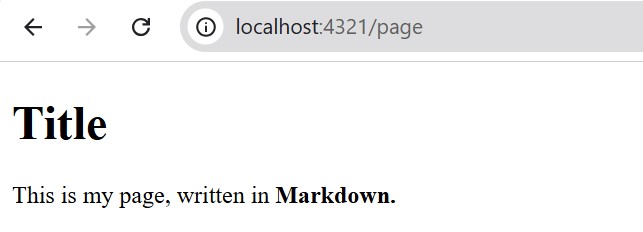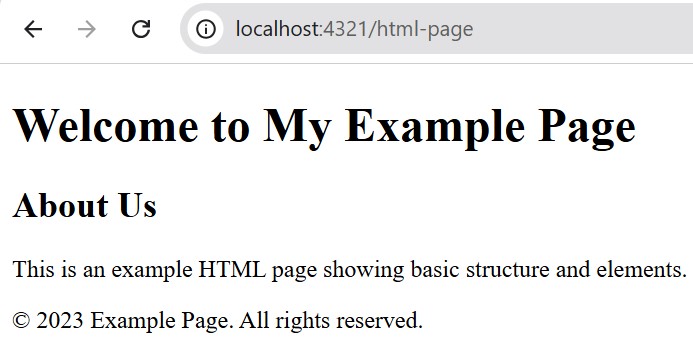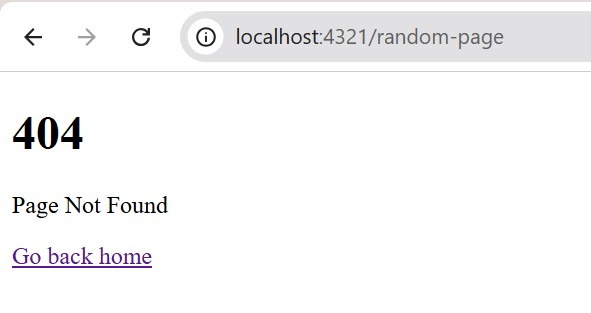
- Astro JS Tutorial
- Astro JS - Home
- Astro JS - Overview
- Astro JS vs Next JS
- Astro JS vs React JS
- Astro JS Setup
- Astro JS - Installation
- Astro JS - Project Structure
- Astro JS - Pages
- Astro JS Architecture
- Astro JS - Islands
- Astro JS - Islands Architecture
- Astro JS Routing
- Astro JS - Routing
- Astro JS - Dynamic Routing
- Astro JS - Redirecting Routes
- Astro JS - i18n Routing
- Astro JS Configuration
- Astro JS - Configuration
- Astro JS - Editor Setup
- Astro JS - TypeScript Configuration
- Astro JS - Environment Variables
- Astro JS Build UI
- Astro JS - Components
- Astro JS - Slots
- Astro JS - Layouts
- Astro JS - Fonts
- Astro JS - Scripts
- Astro JS Create Website
- Astro JS - Markdown Contents
- Astro JS - Add Images
- Astro JS - Manage Content
- Astro JS - Content Collections
- Astro JS - Data Fetching
- Astro JS Styling and CSS
- Astro JS - Styling
- Astro JS - CSS Integration
- Astro JS - CSS Cascading Order
- Astro JS Integrations
- Astro JS - React Integrations
- Astro JS - Svelte Integrations
- Astro JS - Solid Integrations
- Astro JS - Vue Integrations
- Astro JS Adapters
- Astro JS - Netlify Adapter
- Astro JS - Cloudflare Adapter
- Astro JS Testing and Deployment
- Astro JS - Testing
- Astro JS - Deployment
- Astro JS Advanced Topics
- Astro JS - State Management
- Astro JS - Prefetching
- Astro JS - Middleware
- Astro JS - Endpoints
- Astro JS - Authentication
- Astro JS - Bun Environment
- Astro JS - Docker
- Astro JS - View Transition
- Astro JS - Transition Directives
- Astro JS - Astro DB
- Astro JS - Bundling
- Astro JS Useful Resources
- Astro JS - Interview Questions
- Astro JS - Cheatsheet
Astro JS - Pages
Pages in Astro JS
In Astro JS, pages are the building blocks of your application. The pages are markdown or HTML files that define the content and layout of your application. This Pages will be rendered as static HTML files and can be accessed directly by users without using any client side JavaScript. This makes pages lightweight and fast to load. All the pages in Astro JS are defined in the 'src/pages' directory.
Supported File Types
Astro JS supports the following file types for pages:
- Markdown files (.md or .mdx)
- HTML files (.html)
- Astro components (.astro)
- Endpoints (.js or .ts)
Astro Pages Examples
The section below shows how to use different types of pages in Astro JS with examples.
Markdown Pages
Astro supports markdown files as pages. The markdown files are converted to HTML and rendered as static HTML files. You can easily create markdown pages using any text editor. Here is an example of a markdown page.
---
title: 'My Markdown page'
---
# Title
This is my page, written in **Markdown.**
Output
The output is shown below. You can see that markdown page is converted as HTML page at client side.

Astro Pages
Astro supports Astro components with '.astro' extension as pages. Astro components can be reusable UI elements, like a header or a profile card. These components are extremely flexible and can be as small as a snippet of HTML, like a collection of common <meta> tags that make SEO easy to work with. Astro components can even contain an entire page layout or, when located in the special 'src/pages/' folder, be an entire page itself.
---
import Layout from '../layouts/Layout.astro';
---
<html lang="en">
<head>
<title>My Homepage</title>
</head>
<body>
<h1>Welcome to my website!</h1>
</body>
</html>
Output
The output is shown below. You can see that Astro component is converted as HTML page at client side.

HTML Pages
Astro also supports HTML files as pages. Any file with '.html' extension at 'src/pages' directory will be converted as HTML page at client side. Astro considers this as HTML components. It is always recommended to use Astro components instead of HTML pages, as some key Astro features are not supported in HTML Components. Here is an example of HTML page.
<!-- File: src/pages/html-page.html -->
<!DOCTYPE html>
<html lang="en">
<head>
<title>Example HTML Page</title>
</head>
<body>
<div class="container">
<header>
<h1>Welcome to My Example Page</h1>
</header>
<main>
<section>
<h2>About Us</h2>
<p>
This is an example HTML page showing
basic structure and elements.
</p>
</section>
</main>
<footer>
<p>© 2023 Example Page. All rights reserved.</p>
</footer>
</div>
</body>
</html>
Output
The output is shown below. You can see that HTML page is displayed as it is at client side.

Custom 404 Error Page
Astro JS supports using custom 404 error page. A 404 error page is a special page that is displayed when a user requests a page that does not exist. In astro, you can define a custom 404 error page using the src/pages/404.astro file. Here is an example of a custom 404 error page.
<!-- File: src/pages/404.astro -->
<html lang="en">
<head>
<title>404: Page Not Found</title>
</head>
<body>
<main>
<h1>404</h1>
<p>Page Not Found</p>
<a href="/">Go back home</a>
</main>
</body>
</html>
Output
The output is shown below. You can see that custom 404 error page is displayed when a user requests a page that does not exist.
